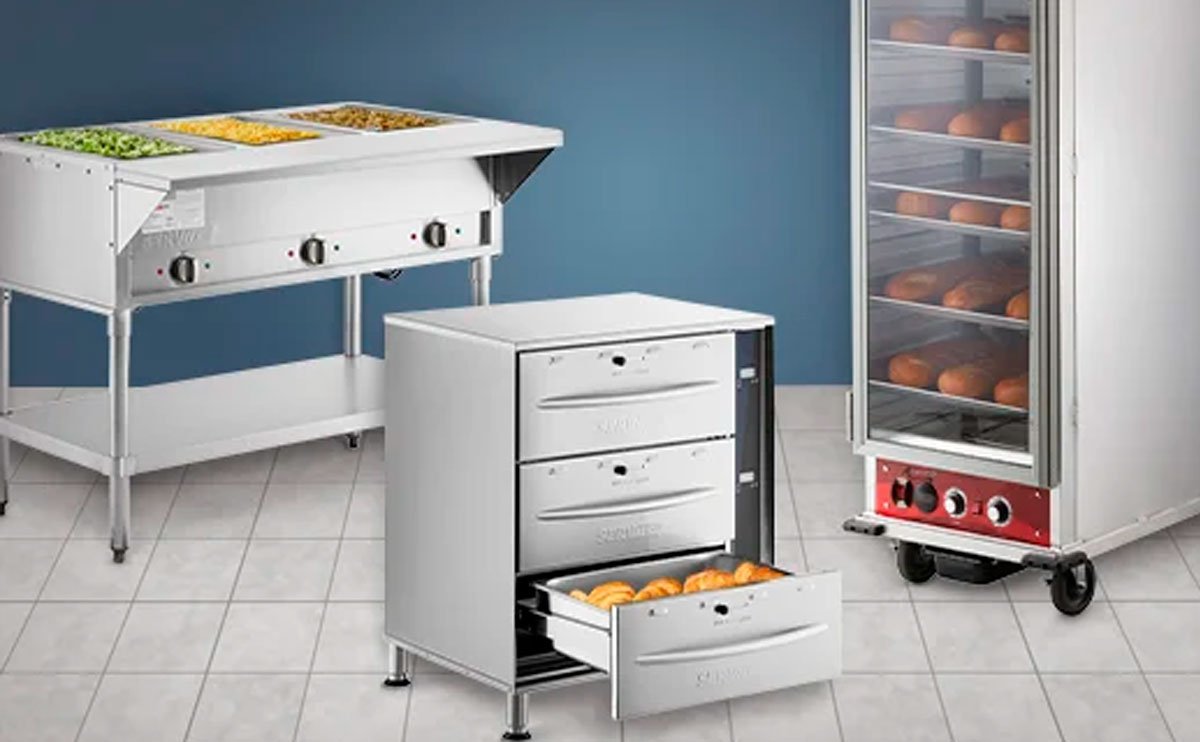These KEYS make us your best ally when buying professional kitchen equipment online

The digital age has revolutionized the way we shop, making it easier than ever to purchase products from the comfort of our homes. This convenience extends to professional kitchen equipment, where chefs, restaurant owners, and culinary enthusiasts can browse and buy a wide range of tools and appliances online. However, when investing in professional kitchen equipment, there are several critical factors to consider to ensure you’re making a wise and informed decision. Here’s a guide to help you navigate your online shopping experience for top-notch kitchen gear.
1. Quality and Durability:
In the world of professional kitchen equipment, quality and durability reign supreme. When browsing through web pages of different equipment, prioritize products that are manufactured by reputable brands known for their commitment to quality. Look for equipment constructed from robust materials that can withstand the rigors of a busy kitchen environment. Stainless steel, for instance, is a popular choice due to its resistance to corrosion and easy maintenance.
2. Functionality and Features:
Different kitchens have different needs. Whether you’re setting up a large commercial kitchen or a small home-based cooking space, ensure that the equipment you’re eyeing aligns with your requirements. Pay attention to the features each product offers – do they enhance efficiency and streamline your cooking processes? Consider items with adjustable settings, intuitive controls, and versatile applications.
3. Size and Space Considerations:
Before hitting that “Add to Cart” button, take a moment to measure the available space in your kitchen. Professional kitchen equipment often comes in various sizes, and it’s crucial that your chosen gear fits comfortably within your kitchen layout. Oversized equipment could lead to congestion and hinder workflow, while undersized tools might not meet your production demands.
4. Energy Efficiency:
In an era of increasing environmental consciousness and rising energy costs, prioritizing energy-efficient equipment is a prudent choice. Energy-efficient appliances not only reduce your carbon footprint but also lead to long-term cost savings. Look for products with high energy efficiency ratings or certifications, as these are indicative of lower energy consumption.
5. Reviews and Ratings:
One advantage of shopping online is the wealth of customer reviews and ratings available at your fingertips. Take advantage of this information to gain insights into real-world experiences with the equipment you’re interested in. Reviews can shed light on aspects that may not be immediately apparent from product descriptions, such as noise levels, performance over time, and customer support quality.
6. Warranty and After-Sales Support:
Even the most robust equipment can encounter issues from time to time. A solid warranty and reliable after-sales support are invaluable in such situations. Before finalizing your purchase, understand the warranty terms and conditions, including coverage duration and what is included. Additionally, research the manufacturer’s reputation for responding to customer inquiries and providing timely solutions.
7. Budget Considerations:
Professional kitchen equipment comes in a wide price range, so it’s crucial to establish a budget before you start browsing. While it’s tempting to opt for the cheapest option, remember that quality and performance often come at a price. Balancing your budget with the features and durability you require is key to making a smart investment.
8. Certifications and Compliance:
Depending on your location and industry, certain certifications and compliance standards might be mandatory for the equipment you use. For instance, electrical appliances might need to adhere to safety regulations. Verify that the equipment you’re considering meets these standards to ensure the safety of your kitchen staff and customers.
9. Accessories and Compatibility:
Some kitchen equipment might require additional accessories or compatible components for optimal performance. Ensure that these accessories are readily available and reasonably priced. Compatibility with existing equipment is also a crucial consideration, as you want to avoid investing in tools that don’t integrate well with your current setup.
10. Delivery and Installation:
Finally, consider the logistics of delivery and installation. Large and heavy kitchen equipment can be challenging to transport and set up. Many online retailers offer delivery and installation services, so inquire about these options and associated costs. Proper installation is vital to ensure the equipment functions correctly and safely.
In conclusion, buying professional kitchen equipment online offers convenience and a wide range of options. However, it is essential to approach the process with careful consideration. Prioritizing support, quality, functionality, energy and post-sale service will be the keys to making a successful and safe purchase.












